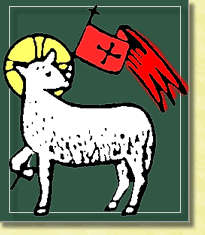Ecclesiasticus 10:7-18
Psalm 112
Hebrews 13:1-8
Luke 14:1,7-14
 A generation ago the Christian essayist Dorothy Sayers wrote a kind of imaginary catechism in which she summarized what she thought people of her time actually believed about Christian faith. It included the question “What does the Church call sin?” And the answer was: “Sex . . . getting drunk; saying ‘damn’; murder’ and cruelty to dumb animals; not going to church; most kinds of amusement. ‘Original sin’ means that anything we enjoy doing is wrong.”1 In another essay, she mentions a young man who once said to her, “I did not know there were seven deadly sins; please tell me the names of the other six.”2
A generation ago the Christian essayist Dorothy Sayers wrote a kind of imaginary catechism in which she summarized what she thought people of her time actually believed about Christian faith. It included the question “What does the Church call sin?” And the answer was: “Sex . . . getting drunk; saying ‘damn’; murder’ and cruelty to dumb animals; not going to church; most kinds of amusement. ‘Original sin’ means that anything we enjoy doing is wrong.”1 In another essay, she mentions a young man who once said to her, “I did not know there were seven deadly sins; please tell me the names of the other six.”2
I would like to ask the question this morning, “What is the greatest sin?” I think that fifty years after Dorothy Sayers, a lot of people still think that the church believes that sex is the greatest sin. Perhaps the only sin. At least the conservative or orthodox church is thought to believe that. On the other hand, a good argument could be made that the progressive church believes that “lack of inclusiveness” or “intolerance” is the greatest sin.
It might be interesting to ask people to set aside their assumptions about what they think Christians believe is the greatest sin, and answer the question in their own way. What do you think is the greatest sin? Murder? Hatred? Betraying a friend? Certainly these are things that people do that cause real harm, and everyone would agree that they are morally wrong. The Lutheran theologian Robert Jenson suggests that all societies endorse the content of the second table of the Ten Commandments – the commandments that prohibit lying, stealing, murder, and so on, because any society that does not prohibit these things will not last long as a society.3
What might surprise people is that historically the Christian church has not specified any of these as the single greatest sin. (more…)


